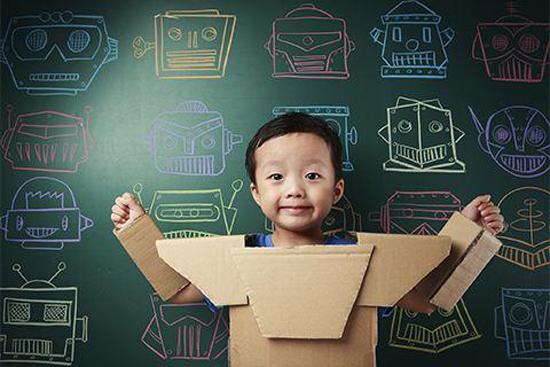[NetEase smart news August 26 news] Garry燢asparov said in a recent TED talk, "Human + machine is not the future, but now." And this "now" is rapidly changing the educational world. As children use tablets more and more, programming becomes a part of the curriculum of each country, and technology is becoming an integral part of the classroom like chalk and blackboard. We have witnessed the rise and impact of education technology, especially through many adaptive learning platforms such as Khan Academy and Coursera, where learners have enhanced their skills and knowledge. Nowadays, virtual reality and artificial intelligence are getting more and more attention. A recent Pearson report explained how artificial intelligence will positively change education in the coming years. The authors of the report believe that “the future provides more powerful tools and support potential.†Imagine that lifelong learning partners driven by artificial intelligence can accompany and support the entire learning of individual learners, both at school and at school In addition, or new methods of assessment learning will create learning experiences in real time. Indeed, high costs are still a challenge, but artificial intelligence and virtual reality tools will be as popular as smartphones and desktop computers. This day is not far off. Intelligent machines provide learners with customized and relevant knowledge when and where they need it. It plays an important role in this regard. For example, the American artificial intelligence research and development company, Content Candles Inc., is using deep learning to provide customized books. The company launched "Cram101" and "JustFact101", turning textbooks from decades ago into relevant intelligent learning guides, making learning more efficient. In addition, learning is becoming a true immersive experience both inside and outside the classroom. As a conference planner, I designed an immersive experience to provide participants with an unforgettable experience and give them a strong desire to return in the next year. As an educator, I believe that the same strategy can also stimulate students' creativity and enthusiasm to produce better learning outcomes. But for decades, experiential learning was limited to scientific experiments in summer homework and outdated laboratories. However, in the field of virtual reality and artificial intelligence, experience or practical learning has a completely new meaning. Various tools, including Microsoft's HoloLens, Oculus 燫ift, or Google 燛xpedition, are transforming traditional experiences into meaningful, real-world experiences. Imagine a room where students are exploring the wreckage of the Titanic, watching the dinosaurs walking around them, discovering the Amazon, or just ascend the moon as an astronaut. This is a huge education leap! “We are moving from a simple 'learning' of a subject or topic to 'feeling' content. Graeme 燣awrie, a director of innovation and outreach at a school in the UK, recently wrote, “This is not just a tool for contact or gimmick. It Let students explore, experience, or participate in something as if they were actually there. †Students are not the only beneficiaries. An intelligent tutoring system such as Carnegie Learning and Third Space Learning is helping teachers get rid of the “one fits all†approach. These one-on-one tutoring platforms use big data and learning analytics to provide instructors with real-time feedback on student performance, strengths and weaknesses. This feedback can help teachers determine the exact learning needs and skill gaps for each student and provide additional guidance. I often hear experts say that "technology makes bad teachers worse." Therefore, there is no doubt that we need to continue investing in their training and career development. No machine can replace human teachers, but it can help teachers reduce stress. Do you remember Jill Watson, an assistant professor of artificial intelligence at Georgia Tech’s Professor Ashok Goel? This just explains how smart machines help teachers transition from roles on the podium to mentors and facilitators. According to Arnett, author of the Christensen Institute, "It is not a threat to technology. It is better to say that teachers and education leaders should use technology to change the way they work." He believes that automation will help simplify basic teaching tasks and help school leaders meet the key challenges of quality instruction, namely the changes in the quality of teachers, the needs of a wide range of students, and the increase in expectations of teachers. “Innovation that commercialized the professional knowledge elements of teachers also provided tools to increase the efficiency of non-expert and expert teachers and brought them to a new height, adapted to the 21st century labor and education system.†Arnett’s teaching report in the machine age Wrote. In this report, he also elaborated potential teachers who have the potential to understand and cultivate the future of artificial intelligence. “Researchers can pinpoint high-quality teachers based on teacher observations, student survey feedback, and student test scores, but they are far less successful at identifying the characteristics of effective teachers and have not articulated a clear path for preparing and developing these teachers. †The most important thing is that teachers can help students develop non-cognitive skills in the 21st century, such as self-confidence and creativity. The vision I mentioned in this article seems overly optimistic to many people. In fact, artificial intelligence and technical support are not the panacea for dealing with systemic challenges. Artificial intelligence may not become the next big leap in education, but it will inevitably have disadvantages and bring a series of problems. However, we cannot ignore its inherent advantages because these advantages can help us solve the gaps and gaps in teaching that have been worked hard to fill for decades. (Selected from: Forbes Author: Sebastien candle urbot compilation: NEW YORK see foreign intelligence platform compiler welding Guo Ke board under tiles on roof #  penalty / p>? Pay attention to NetEase smart public number (smartman163), get the latest report of artificial intelligence industry. Our solar module has high reliability. Minimized micro-cracks with innovative non-destructive cutting technology. Ensured PID resistance through cell process and module material control. Bifacial Double Glass Module,Silicon Solar Module,Silicon Mono Solar Module,Monocrystalline Silicon Solar Module Jiangxi Huayang New Energy Co.,Ltd , https://www.huayangenergy.com


